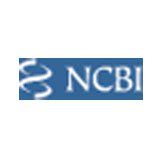
Originally posted on NCBI
Breastfeeding is widely endorsed as the optimal strategy for feeding newborns and young infants, as well as improving child survival and achieving Millennium Development Goal 4. Exclusive breastfeeding (EBF) for the first 6 months of life is rarely practised in South Africa. Following the 2010 World Health Organization (WHO) infant feeding recommendations (EBF for HIV-positive mothers with maternal or infant antiretroviral treatment), South Africa adopted breastfeeding promotion as a National Infant Feeding Strategy and removed free formula milk from the Prevention of Mother-to-Child Transmission of HIV programme. This study aimed to explore the perceptions of mothers and household members at community level regarding the value they placed on formula feeding and circumstances that drive the practice in a peri-urban community. We conducted in-depth interviews with HIV-positive and HIV-negative mothers in a community-randomised trial (Good Start III). Focus group discussions were held with grandmothers, fathers and teenage mothers. Data were analysed using thematic analysis. The following themes were identified; inadequate involvement of teenage mothers; grandmothers who become replacement mothers; fear of failing to practise EBF for 6 months; partners as formula providers and costly formula milk leading to risky feeding practices. The new South African Infant Feeding Strategy needs to address the gaps in key health messages and develop community-orientated programmes with a focus on teenage mothers. These should encourage the involvement of grandmothers and fathers in decision-making about infant feeding so that they can support EBF for optimal child survival.